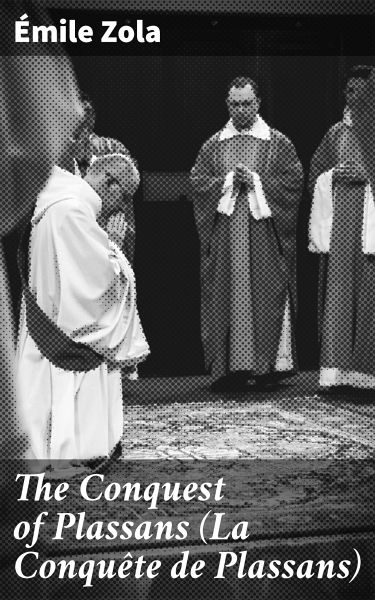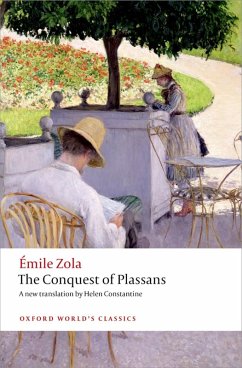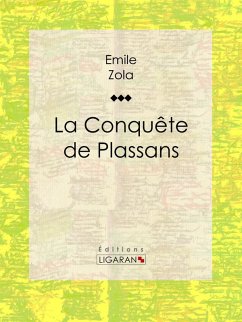
The Conquest of Plassans (La Conquête de Plassans) (eBook, ePUB)
Betrayal and Ambition in Provincial France: A Tale of Power Struggle and Family Dynamics
Übersetzer: Vizetelly, Ernest Alfred
Versandkostenfrei!
Sofort per Download lieferbar
0,49 €
inkl. MwSt.
Weitere Ausgaben:

PAYBACK Punkte
0 °P sammeln!
vâmile Zola's "The Conquest of Plassans" (La Conquv(TM)te de Plassans) is a profound examination of provincial life in 19th-century France, offering a vivid portrayal of the socio-political dynamics at play in a small town. Written in Zola's characteristic naturalistic style, the novel intricately unravels the story of a family's tragic entanglement with the forces of ambition and corruption, revealing the often harsh realities of human existence. Through meticulous observation and rich character development, Zola explores themes of power, deceit, and the collective psyche of a community, fir...
vâmile Zola's "The Conquest of Plassans" (La Conquv(TM)te de Plassans) is a profound examination of provincial life in 19th-century France, offering a vivid portrayal of the socio-political dynamics at play in a small town. Written in Zola's characteristic naturalistic style, the novel intricately unravels the story of a family's tragic entanglement with the forces of ambition and corruption, revealing the often harsh realities of human existence. Through meticulous observation and rich character development, Zola explores themes of power, deceit, and the collective psyche of a community, firmly situating the text within the broader context of the French Third Republic'Äôs turbulent political landscape. vâmile Zola, known as the father of literary naturalism, was deeply influenced by the societal changes of his time, including the rise of the bourgeoisie and the impact of industrialization. His experiences within a family struggling against the oppressive structures of society fueled his desire to depict the stark realities of life. Zola'Äôs vigorous engagement with issues of ethics and morality, alongside his commitment to social justice, profoundly shaped the narrative of "The Conquest of Plassans," highlighting the complexities of human behavior in response to social forces. I highly recommend "The Conquest of Plassans" to readers interested in the interplay of individual aspirations within a constrained societal framework. Zola'Äôs evocative prose and incisive commentary invite readers to reflect on the moral dilemmas faced by his characters, ultimately leading to an engaging exploration of the human condition. This novel is not only significant in Zola'Äôs oeuvre but also provides critical insights into the realities of small-town life during a pivotal moment in French history.
Dieser Download kann aus rechtlichen Gründen nur mit Rechnungsadresse in A, B, BG, CY, CZ, D, DK, EW, E, FIN, F, GR, H, IRL, I, LT, L, LR, M, NL, PL, P, R, S, SLO, SK ausgeliefert werden.













